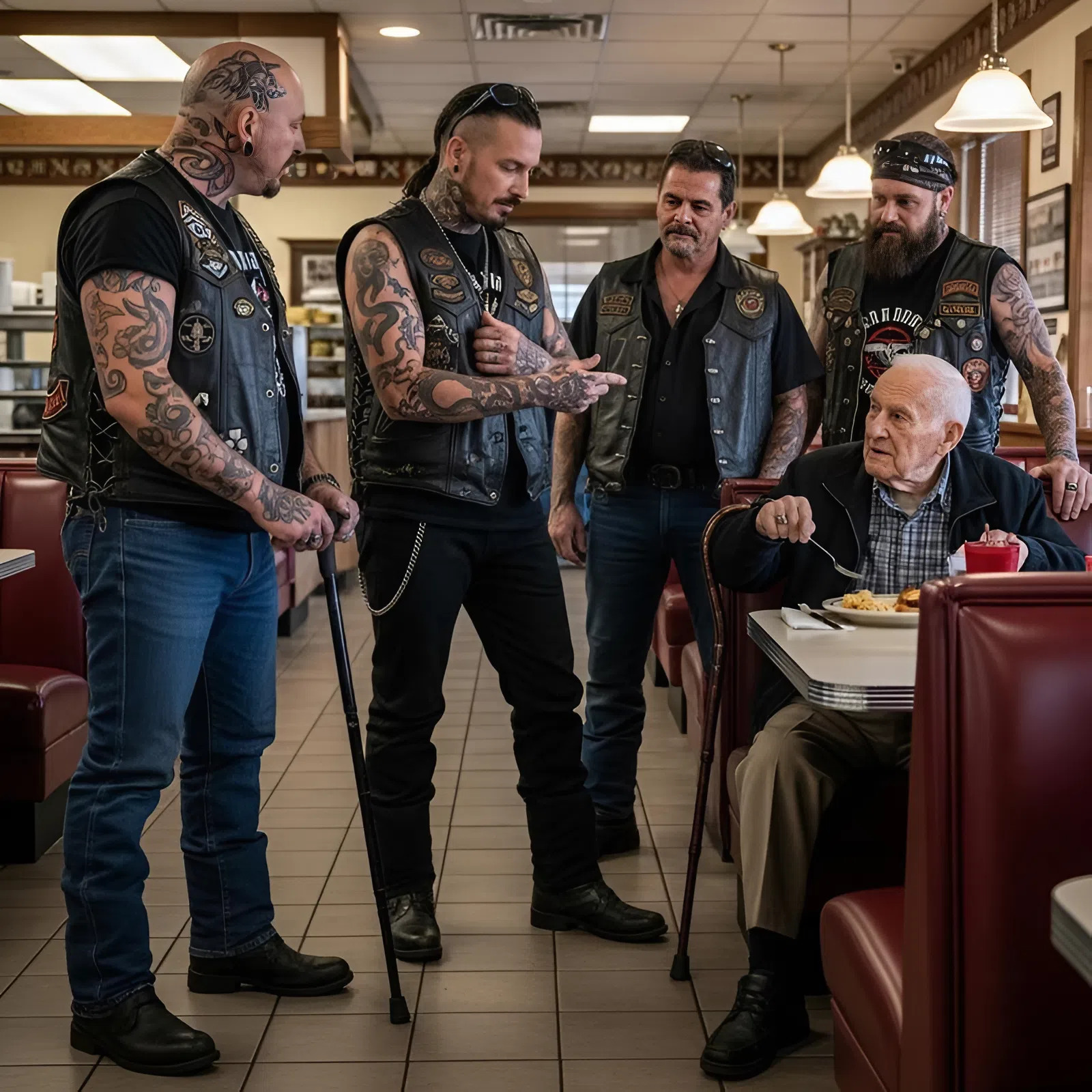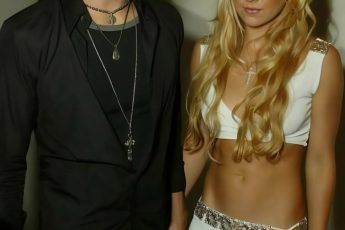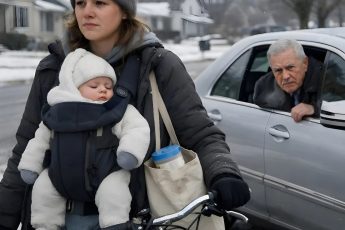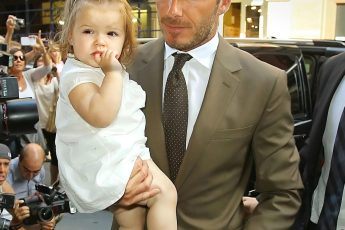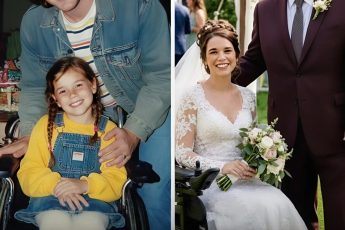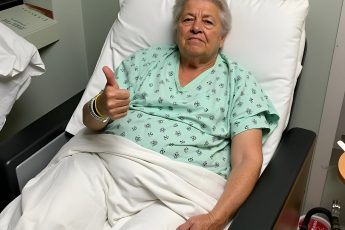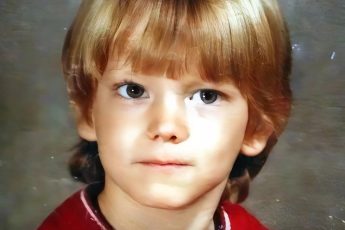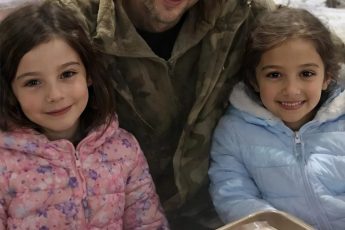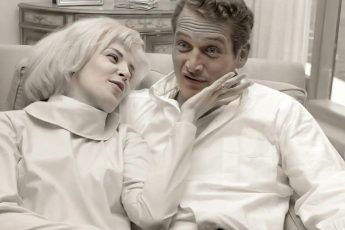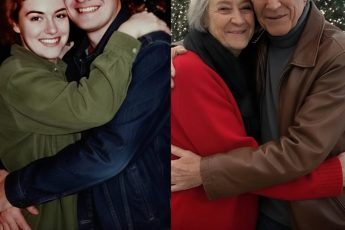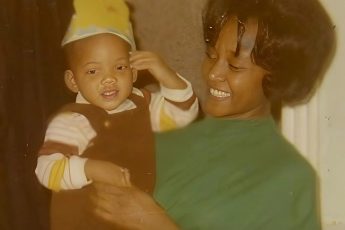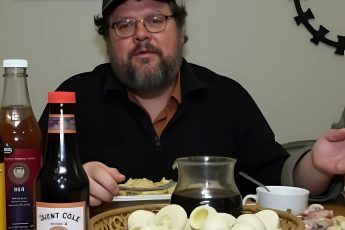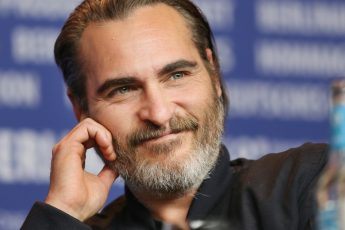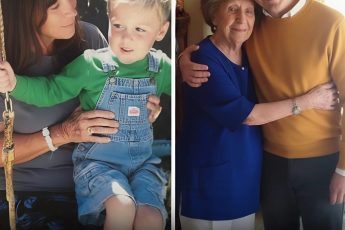Walter Davis always arrived at Maggie’s on time — at 8:05. Not at eight, not at ten past — at 8:05. Over twenty years, the diner had grown accustomed to the fact that you could set your watch by this man.
He was the kind of old man you hardly ever see anymore: ironed shirt, polished shoes, walnut cane, straight back, despite being in his nineties. And his gaze — not dull, not distracted, but attentive, piercing. A veteran who had seen things that people today only talked about in films.
That Sunday, he also walked in at exactly 8:05. Maggie, plump and round-faced as always, was already putting his coffee on the counter.
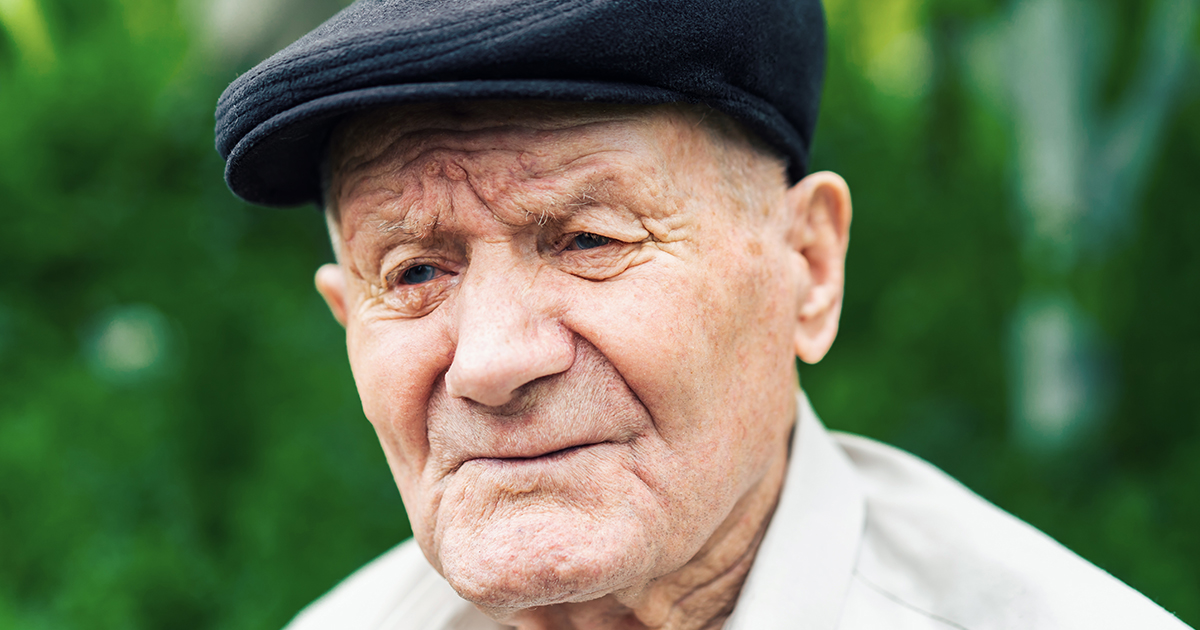
‘Good morning, Walt,’ she smiled.
‘Morning, girl,’ he nodded and headed for his table by the window.
The door slammed before he had time to sit down.
Five men floated into the diner. Leather vests without club patches — meaning they weren’t locals. Skulls, snakes, chains. One was red-haired with a goatee and was the loudest of them all. Another was a big guy with a tattoo on his neck. The rest were typical road dogs: lots of noise, little discipline.
‘Oh!’ said the redhead, looking around the room. ‘It’s cosy here. Almost like a church.’
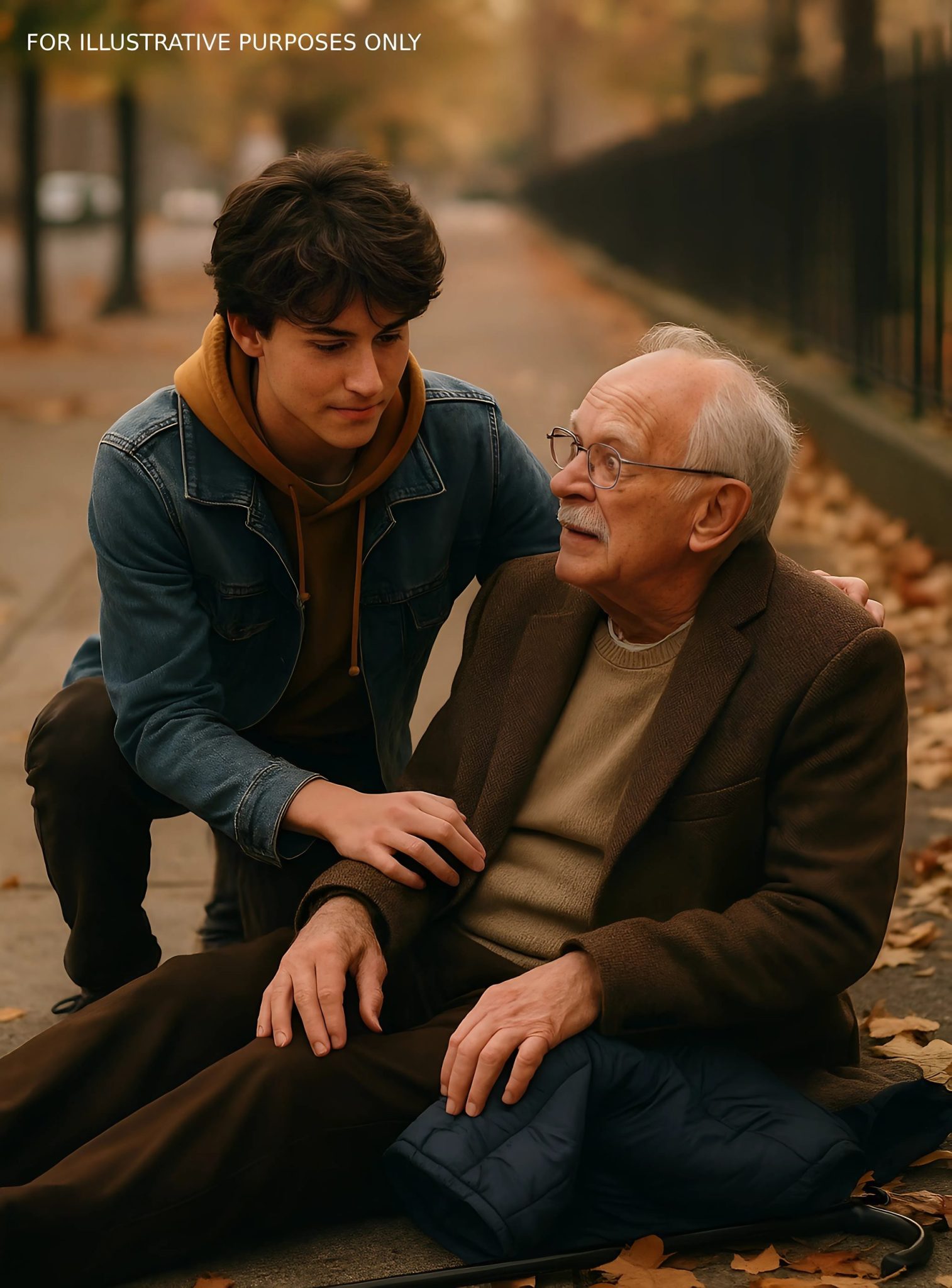
Several regulars lowered their eyes. Here, in this small town, noisy strangers were not welcome.
‘Sit wherever you like,’ said Maggie, but her voice trembled.
The bikers sat down in the centre of the room, stretched out their legs, and began to order loudly. One of them noticed Walter.
‘Look, Santa Claus,’ he laughed. ‘What are you doing here, Ensign? Lost your way to the nursing home?’
The others laughed.
‘Look, Father Christmas,’ he chuckled. ‘What are you doing here, Ensign? Did you get lost on your way to the old people’s home?’
The others laughed.

Walter didn’t look up. He cut the pancake into perfect triangles, as he always did.
For some reason, this angered the redhead.
‘Hey, old man!’ He walked over and banged on the table. ‘I’m talking to you.’
Maggie was already reaching for the phone. Walter raised his hand.
‘Don’t, Meg,’ he said quietly. ‘This will only take a minute.’
He took an old phone with a cracked cover out of his pocket, opened the list and pressed a button.
‘This is Davis,’ he said into the receiver. ‘Maggie’s. Looks like we have some uninvited guests here.’
‘Who the hell are you?’ the redhead shouted. ‘Did you call the army? The veterans’ choir?’
‘Something like that,’ Walter replied and took a sip of coffee.
It was quiet outside. For a minute. Two.
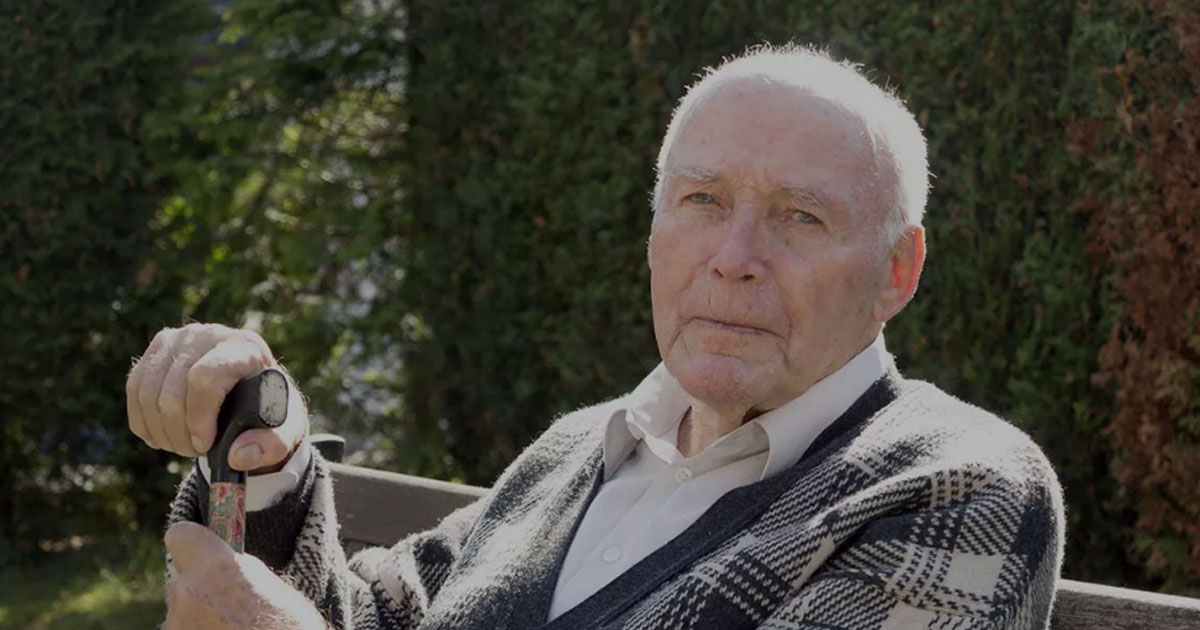
And then somewhere in the distance — at first like a distant echo of a thunderstorm — there was a rumble. Hundreds of iron pistons, an unsynchronised chorus of exhausts, a sound familiar to anyone who has ever lived near a motorway.
The bikers exchanged glances.
‘What the hell is that?’ the big man began.
The sound grew louder. A convoy was approaching the diner, its front windows, the neon sign with the faded words ‘Maggie’s Diner.’
Not five motorcycles. Not ten.
Twenty.
Identical, shiny, well-maintained Harleys and Indians, some so old and rare that today’s youth had only seen them in museums. And on each one was an older man. Some with grey forelocks, some with bandanas, some with patched leather vests. On their chests, they wore identical round patches:

Identical, shiny, well-maintained Harleys and Indians, some so old and rare that today’s youth have only seen them in museums. And on each one, an elderly man. Some with grey forelocks, some with bandanas, some with patched leather vests. On their chests, they all wore the same round patch:
IRON LEGION MC
Est. 1956
Veterans Chapter
The bikers inside the diner turned pale.
‘Are you… are you in the club?’ the redhead managed to say.
Walter slowly turned his head towards him. His eyes suddenly took on an expression that only those who have been under fire can see.
‘Boy,’ he said calmly. ‘I founded this club.’
The door swung open. A tall, thin man with a grey goatee entered.
‘Colonel,’ he nodded to Walter.

‘Hello, Jim,’ he replied. ‘Looks like some puppies got lost here.’
‘I see.’
The veterans spread out across the room, filling it so that the young bikers had nowhere to move. These weren’t gym thugs. These were people with more scars on their bodies than the five of them had tattoos.
‘Well,’ Jim said, ‘who here is offending our founder?’
The redhead swallowed.
‘We… we didn’t know…’
‘That’s your problem,’ one of the grey-haired men smiled. ‘You don’t know anything.’
It seemed like they were about to be thrown out by the scruff of their necks. But Walter raised his hand.
‘Stop.’

Everyone fell silent.
‘They’re not enemies yet. They’re just uneducated,’ he said. ‘And maybe not hopeless.’
The redhead blinked in surprise. He was clearly more used to being punched than being talked to.
‘What’s the gang called?’ Walter asked.
‘Snake Riders,’ the big man grumbled.
A wave of laughter swept through the room.
‘Snakes…’ someone chuckled. ‘Good heavens, kindergarten.’
‘How old are you?’ Walter continued without batting an eyelid. ‘Twenty? Twenty-two? Eighteen?’
‘I’m twenty-four,’ the redhead grunted, trying to regain his composure. ‘And I don’t give a damn who you are.’

‘Twenty-four,’ Walter repeated. ‘Do you know how old I was when I pulled my comrade out of the water at Incheon? Nineteen. When we buried a guy at Dondon who didn’t even have time to send a letter home? Twenty. We were loud too. But at least we knew who to respect.’
He tapped his cane on the floor.
‘You broke into the establishment of a woman who feeds half the city and decided to make fun of an old man. That’s not courage. That’s emptiness.’ He leaned forward. ‘But I can see in your eyes that you’re always looking for someone to take you in.’
Silence.
‘So,’ Walter continued. ‘We’ll take you. But on our terms.’
‘What do you mean, “take us”?’ the redhead didn’t understand.
Jim took a bundle of black cloth from the inside pocket of his waistcoat and threw it on the table.
‘The founder said we’re taking it. So we’re taking it,’ he said.

The Snake Riders looked at each other in confusion. Run away? Too late. Get into a fight? Against twenty veterans who, even without weapons, had years of combat experience?
‘What… what are the rules?’ the big man asked hoarsely.
Walter smiled for the first time that morning.
— First: don’t touch old people.
— Second: don’t touch women.
— Third: pay for the damage.
He turned to Maggie.
‘How much did they consume?’
‘I… I don’t…’ she stammered.
‘Everything they ate and drank is on them,’ Walter said. ‘And a monthly allowance for stress.’
The redhead gritted his teeth but reached for his wallet.

‘And fourth,’ Walter added, ‘starting today, you’ll come to the veterans’ home on Sundays and wash their bikes. Yes, the old men ride. Better than you do.’
‘Come on…’ one of the young men began.
Jim just raised an eyebrow.
‘Is there a problem?’
‘No,’ he hissed.
Walter nodded, satisfied.
‘Excellent. You had the opportunity to become nothing. I’m giving you the chance to become someone. Not because you deserve it, but because I’m too old to watch young people become completely stupid.’

The veterans laughed.
The bikers stood up. They paid, gritting their teeth and blushing. But they paid. Because twenty people were watching them, people who had looked death in the face and not flinched — which meant they wouldn’t flinch here either.
When the doors behind Snake Riders closed, Maggie leaned on the bar.
‘Walt… What was that all about?’ she exhaled. ‘You said you hadn’t ridden in a long time.’
The old man winked.
‘I said I don’t ride. But I didn’t say they don’t listen to me.’
The veterans were already ordering coffee and pies, as if it were their regular Sunday meeting.
Walter sat back down at his table. He picked up his fork.

‘By the way, Meg,’ he called out. ‘This Sunday, add five more to the list for the veterans’ discount.’
Walter sat down at his table again. He picked up his fork.
‘By the way, Meg,’ he called out. ‘This Sunday, add five more people to the list for the veterans’ discount.’
‘But they’re not veterans,’ she said, surprised.
‘They will be,’ said Walter, looking out the window, where five confused but no longer so cocky young men were starting their motorcycles. ‘Everyone should have the opportunity to become better.’
He brought the cooled coffee to his lips, took a sip, and smiled — the kind of smile people have when they really do have an army, if they ever need it.
